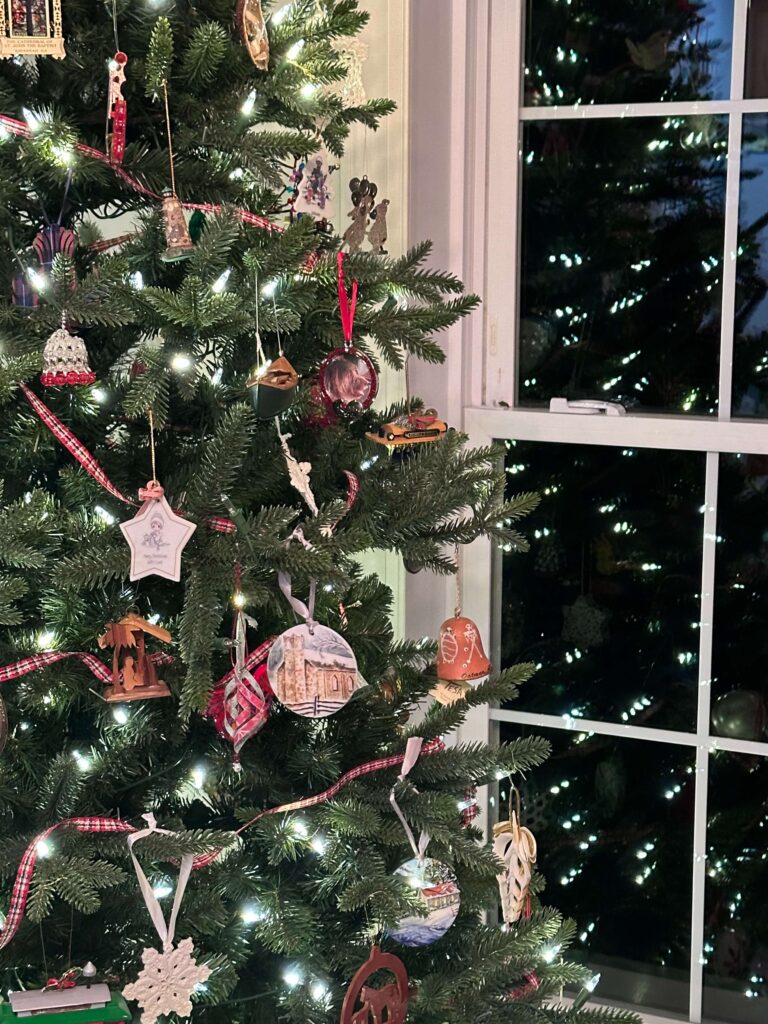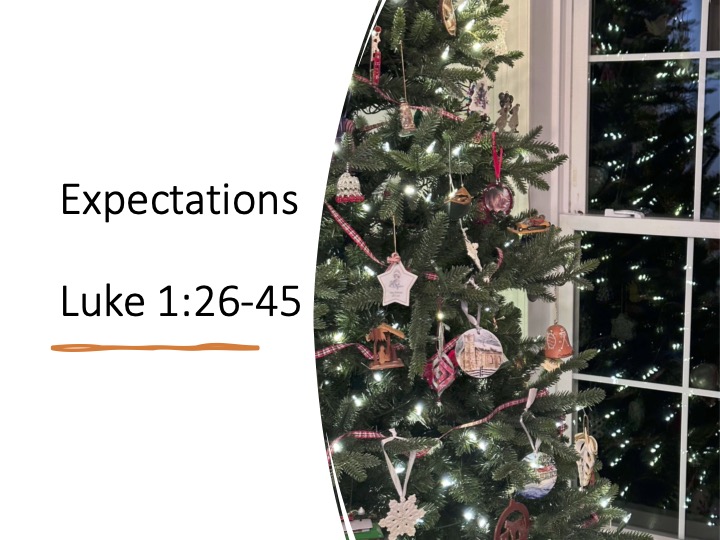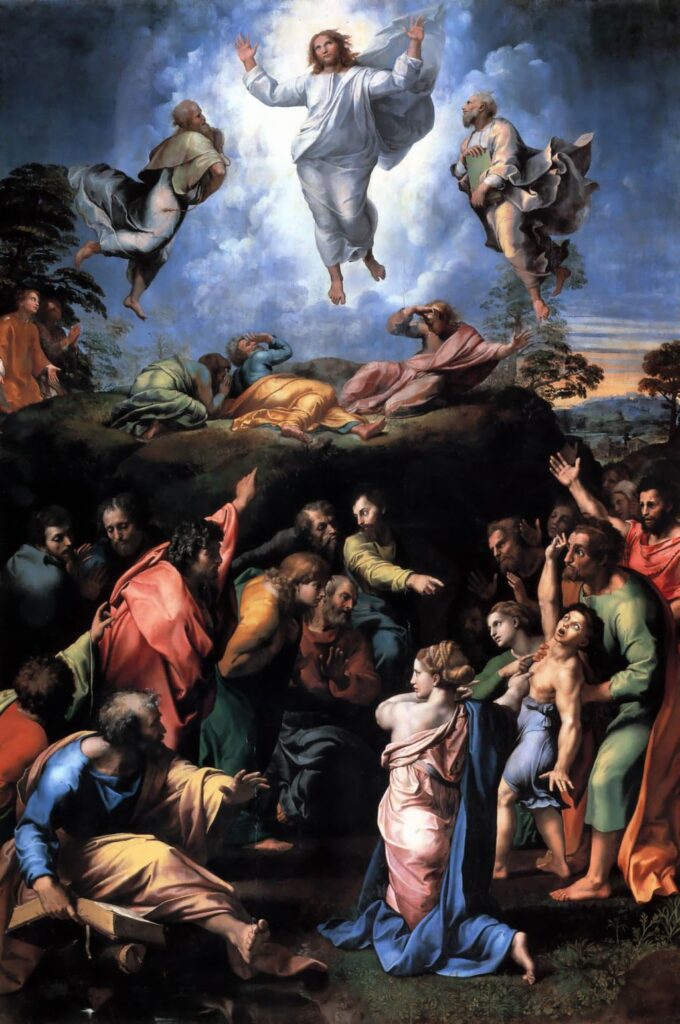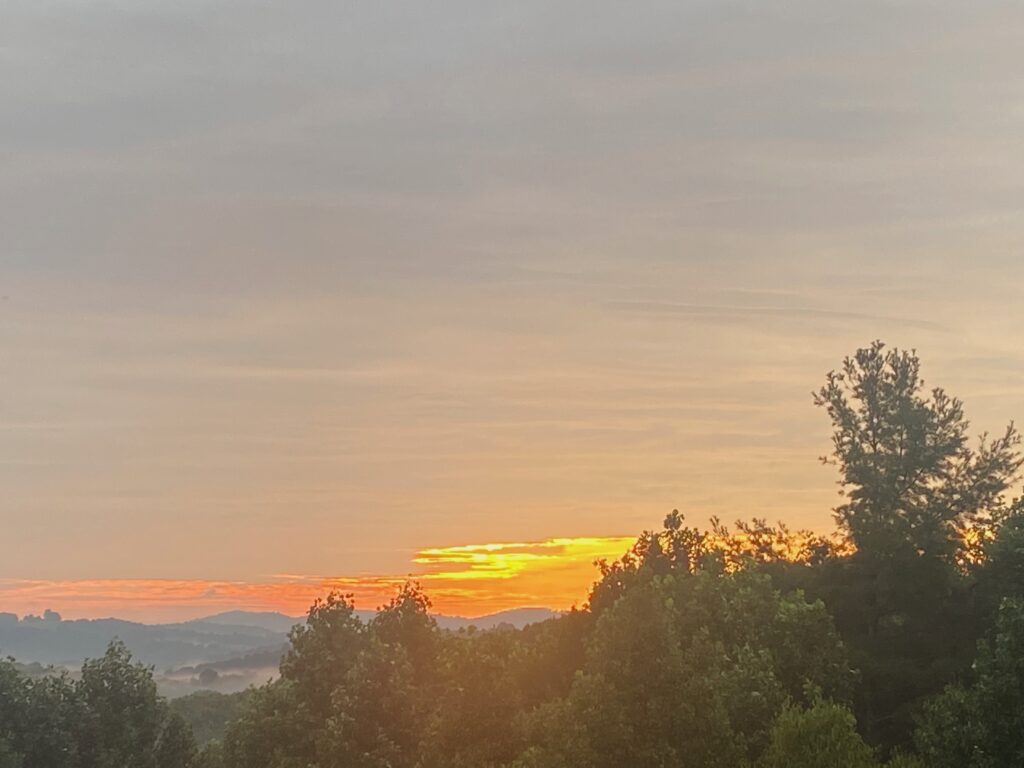Jeff Garrison
Bluemont Church
Fourth Sunday in Advent
December 24, 2023
Luke 1:26-45[1]
Tonight there will be a candlelight service at Mayberry Church at 6 PM.
Our wait is almost over. It seems as if we should have another week before Christmas. After all, today is the 4th Sunday of Advent and tonight, we celebrate Christmas Eve with a candlelight service at Mayberry Church, celebrating the birth of our Savior. This year, the calendar tricks us!
Of course, our wait for Jesus’ return continues. I hope our celebrating Jesus’ first coming will be more than opening gifts. Not only should we give thanks for his birth, but with the excitement of a child looking for Santa’s sleigh in the night sky, we should long for his return.
God’s timing is different than ours. Sometimes the wait is for generations and centuries. But God is good and faithful; his promises are fulfilled. We might think we waste time waiting. But during periods of waiting, God transforms his people. Being patient is a godly trait that we all need to work on.
Today, we will be looking at two women, one old and the other young, both expecting their first child. Expectations filled their nine-month wait. Read Luke 1:26-45.
###
There was once a spoiled and rotten child… As Christmas approached, he produced a letter to Santa with a wish list that rivaled a Russian novel. And he expected to receive it all. “Christmas is not the season of entitlement,” his mother said in a scolding tone.[2] His parents, knowing they needed to nip his attitude in the bud, forced him to sit in front of the Nativity scene in the living room and contemplate the meaning of Christmas. Then he was to write a letter wishing Jesus a happy birthday.
The boy stared intently at the manger, but he couldn’t get it out of his head that Christmas wasn’t just about him receiving gifts. He began to compose a letter. “Dear Jesus,” he wrote, “If you bring me all that I want, I’ll be good for the year.” Then he thought about how hard that’d be. He tore up the letter and tossed it in the waste basket.
He started over. “Dear Jesus, if you bring me all that I want, I’ll be good for a month. Again, the thought about how hard that would be, to be good for a month, for 30 days. He crumbled the letter and dropped it in the waste basket.
He started again. “Dear Jesus, if you bring me all that I want, I’ll be good for a week.” Thinking further, he realized how futile such an effort would be. He tossed that letter into his rapid filling waste basket and resumed his contemplation of the Nativity.
Suddenly he spotted the figure of Mary, in the back, behind the manger, a beautiful young woman wrapped in a light blue shawl, her face shining as she gazed upon her newborn son. He snatched Mary out the Nativity, wrapped her in some tissue paper and hid her in the bottom drawer in his dresser. Then he went back to writing his letter. “Dear Jesus, if you ever want to see your mom again…”
The first time I ever told this joke, it was at a Christmas service I preached at in a local prison. I never heard a crowd laugh so much. Perhaps they identified with the boy. But they also know something about waiting, and that’s the theme from this passage I want us to explore this morning.
Parents, especially mothers know about waiting… Those nine months can be hectic as you learn about breathing techniques during delivery and how to care for a newborn. And then there is the necessity of preparing for a nursery—most of us are beyond repurposing a manger for a crib. Waiting means there’s anticipation and hope. You pray for your soon to be born child with the hope they won’t grow up to be the terror like the little boy in my opening story. But even if that happens, we’ll still look back on earlier innocent moments with a smile.
I can’t imagine what must have gone through Mary’s mind as she is visited by Gabriel. Engaged to Joseph, she carries a special child. But she’s told to have no fear (easier for the angel to say than for Mary to do). Gabriel explains about how the child was conceived and his purpose in life.
Gabriel also has another message, one about her relative, Elizabeth. After years of trying to conceive a child, she’d given up hope. Now that she’s old, she finds herself pregnant. It seems impossible, but Gabriel reminds Mary that nothing is impossible for God.
Mary heads down into the Judean hill country to visit Elizabeth. It used to be that way; a young woman not yet married, yet pregnant, goes to live with an aunt or a grandmother. With Zechariah struck silent for his disbelief,[3] the two women talked incessantly about their expectant babies. We’re told that when they greeted each other, Elizabeth’s child, who will become John the Baptist, jumps in her womb. The premature boys in the womb recognize each other.
There is much excitement, for they understand God is doing something new. But they must wait. They must wait till their children are born, and then they must wait till they are grown. Jesus, we learn, doesn’t start his ministry till he’s thirty.[4] And poor John’s parents. I’m sure they hoped their son would lead worship in a fine synagogue in a respectable city. If they lived long enough, they got to see him preach knee deep in the muddy Jordan.[5] God works in mysterious and strange ways.
In a devotion based on this text, the late Henri Nouwen wrote:
I find the meeting of these two women very moving, because Elizabeth and Mary came together and enabled each other to wait. Mary’s visit made Elizabeth aware of what she was waiting for. The child leaped in joy in her. Mary affirmed Elizabeth’s waiting…. These two women created space for each other to wait. They affirmed for each other that something was happening that was worth waiting for.”[6]
I like the idea of the two of them creating space for the other to wait. Our world encourages us to rush in and fix things right away. We don’t value waiting. We need to create space for us and for others to wait, trusting that God works within us as we wait.
It is healthy for us to accept and understand that there are things in life we can’t control. We can’t control when God wants to act. Mary and Elizabeth, in our passage today, had no control over what was happening.
If it had been in Elizabeth’s control, I’m sure that she’d given birth to John when she and Zechariah were young enough that their backs didn’t ache from picking up the boy. And Mary, I’m sure, imagined waiting on kids until she and Joseph married and had time for each other. Maybe taken a cruise or purchased a house. The idea of honeymooning in Egypt with a newborn, as a refugee on the run from the authorities, wasn’t any more romantic then than it would be today.
Let me talk a bit about the church and waiting. I admit, I’m often frustrated at the pace the church moves. It was worse when I was younger. Early in my ministry, I started comparing my attempts at changing the course of a church to that of a Captain of a battleship steering with a canoe paddle. Change comes slowly. Some people get upset with that (while others don’t want change at all).
Looking at scripture, we seechange takes time. We should be more patient. God seems to wait till the timing is right, and only then does the speed of change accelerates. At the time of our text, God had been quiet for centuries. There had been no prophets in Israel. And then, suddenly, God acts. And the world changes forever.
We might often wonder what God is up to. But we should remember that God’s will has a “what and when” component.[7]We can want things to go faster, but we must remember that its best if we go with God’s timing. Otherwise, we might make a mess of things.
The two women in our passage today, one who may have only been barely more than a child and the other who was up in years, remind us that whatever our age (or whatever our level of spiritual maturity may be) when we open to God, the Almighty can use us to do incredible things. We just must be open to the Lord and to wait on his timing.
We live in a world where we expect instant gratification. But when it comes to our faith, such expectations may be unrealistic and even harmful. Having faith means we’re in God’s hands and open to his timing. We don’t know when Jesus will return, but we should anticipate it and be ready. In the meantime, like Mary and Elizabeth, we support one another. Amen.
[1] I preached a different version of this sermon on December 15, 2011 in Hastings, Michigan.
[2] My Adult Ministry coordinator, MaryMartha Melendy, when I served First Presbyterian Church in Hastings, Michigan, used this phrase.
[3] Luke 1:20
[4] Luke 3:23
[5] Matthew 3; Mark 1:1-9; Luke 3:1-21; John 3:22-24. John’s preaching included both the Jordan River and that that region.
[6] Henri Nouwen “Waiting for God” in Watch for the Light: Readings for Advent and Christmas (Maryknoll, NY: Orbis Books, 2001), 35.
[7] Larry Osborne, Sticky Teams (Grand Rapids: Zondervan, 2010), 179.











